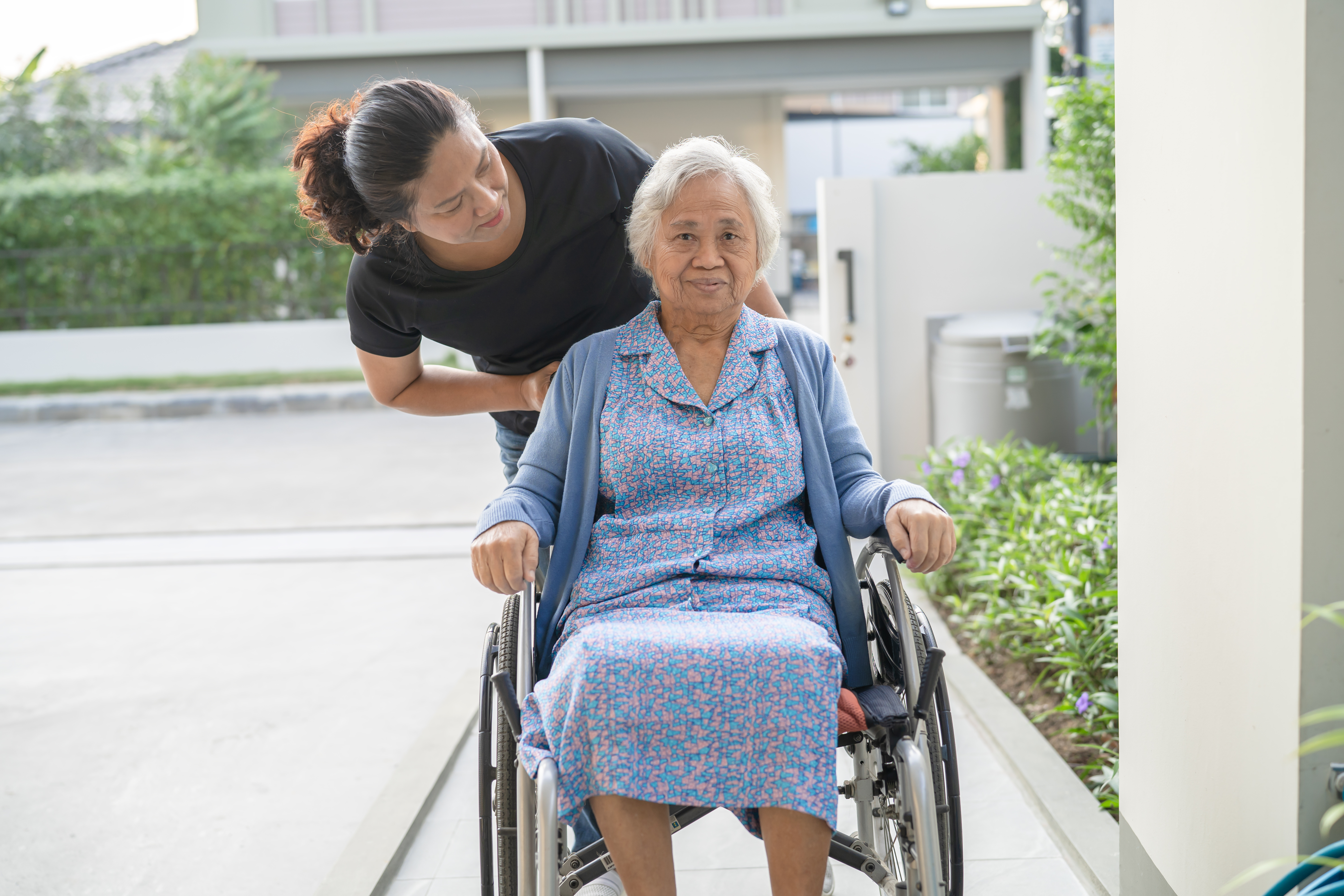What to say to someone after a stroke: 5 ways to show support

You might not know what to say after someone suffers a stroke, but your presence and compassion matter more than finding the perfect words. Stroke recovery can be tough, both physically and emotionally. The key is offering support that empowers, helping your loved one feel in control. Sometimes, it’s the small things: a kind word, a quiet moment, or just showing up. These little acts of care can make all the difference in helping them feel seen, supported, and hopeful.
When someone you care about has a stroke, finding the right words can feel overwhelming. You want to be supportive and comforting, but you might worry about saying the wrong thing or not knowing what to say at all.
The truth is that showing sincerity and compassion matters more than saying something perfectly. Connection plays a powerful role in a stroke survivor’s recovery. The things we do can help someone feel seen, supported, and hopeful as they navigate their healing journey.
Whether your loved one is still in the hospital or settling in at home, your voice can offer a steady source of comfort. Read on to explore five thoughtful ways to consider what to say to someone who has had a stroke, helping you speak with kindness, confidence, and care.
Understanding their experience
Before finding the right words to say, it’s helpful to first understand what your loved one may be experiencing physically, emotionally, and mentally while they work through their recovery therapy.
A stroke can affect many aspects of someone’s life, and each person’s recovery journey is different. Learning more about their unique experience will help you offer thoughtful and meaningful support. Work with your loved one to develop a comfortable form of communication that takes into account their symptoms to ensure they can help you understand their wants and needs.
1. Recognize accomplishments
Depending on the severity and location of the stroke, your loved one may be adjusting to changes in:1
Mobility
Speech
Memory
Coordination
Tasks that once felt routine, such as walking, eating, or writing, might now require extra brain power, effort, or support. These shifts can prove frustrating, and even small accomplishments deserve to be recognized and encouraged.
2. Start with empathy
Beyond the physical impact, stroke recovery often involves managing a wide range of emotions. A person who has experienced a stroke may experience feelings of grief, anxiety, confusion, or even anger.2 At the same time, you may also see moments of hope and strength.
Acknowledging these emotional ups and downs without judgment and meeting your loved one with empathy lets them know they’re not alone in how they feel.
3. Listen with patience
One of the most powerful ways to support a loved one after a stroke is simply to listen. Your presence, more than any perfect phrase, can offer deep reassurance.
Create space for your loved one to share their thoughts, frustrations, fears, or hopes about their therapy without rushing them or trying to offer immediate solutions. It’s OK if they repeat themselves, speak slowly, or struggle to find the right words.
These moments can be emotionally vulnerable, and your calm, patient attention helps build trust. Rather than focusing on what to say next, focus on being present. Try reflective listening by gently repeating back what you hear to show that you understand.
4. Use encouraging phrases and ask thoughtful questions
In moments of uncertainty or frustration, remember to express to your loved one that you see their effort and recognize their progress. Even the smallest wins during recovery deserve acknowledgment. Focus on providing gentle, reassuring comments that validate how hard they’re working during their symptom therapy.
Patience is another meaningful message to convey. Let your loved one know they should feel no rush or expectation to “bounce back.” Offer them comfort and confidence by reminding them that they can take their time — and that you’ll be there every step of the way.
Asking your loved one how they’re feeling or what they need — rather than assuming — helps keep the lines of communication open and gives them a sense of control. Listening without cutting in or trying to fix the problem also shows them that their voice still matters in a time when the way forward may feel uncertain.
5. Avoid comments that just aren’t helpful
On the other hand, certain comments — though often well-meaning — can come across as dismissive or pressure-filled. Avoid these pitfalls that may unintentionally leave your loved one feeling misunderstood:
Downplaying what they’re going through.
Comparing their experience to others.
Rushing past their emotions.
Cutting them off or making assumptions before they can finish their thought.
Additionally, overly optimistic reassurances about a quick recovery might seem uplifting, but they can also create unrealistic expectations or minimize the complexity of stroke rehabilitation.
Finally, avoid stepping in to take over tasks unless they ask for your help; supporting independence is a key part of the healing process.
Discover more tips on stroke caregiving
Get more tips on how to care for someone after a stroke with our guide.





